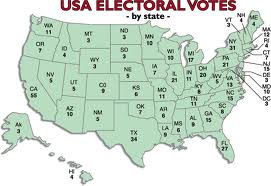
Compared to any other country, the US maintains a lot of military bases around the world.
According to the Pentagon's own list PDF, the answer is around 865, but if you include the new bases in Iraq and Afghanistan it is over a thousand. These thousand bases constitute 95 percent of all the military bases any country in the world maintains on any other country's territory.
Many people, especially many Americans, see these bases as playing an important part in maintaining US national security.
Other people, especially those people in foreign countries impacted by US military bases, see these installations differently. For sure, some people see the US military bases as important for their country's national security, but certainly not everyone sees the US bases in that light. Others see the US military bases in their country in less positive terms. For instance, many of the people living in Vieques, Puerto Rico were unhappy with the use of their island as a bombing range by the US Navy. There have been protests in Seoul, South Korea outside US military installations against US involvement in North-South Korean relations. Japanese citizens living in Okinawa have reservations about US Navel and Marine bases. In Ghana, Kwame Nikrumah, an important African politician and anticolonial intellectual, argued that:
Foremost among the neo-colonialists is the United States, which has long exercised its power in Latin America. Fumblingly at first she turned towards Europe, and then with more certainty after world war two when most countries of that continent were indebted to her. Since then, with methodical thoroughness and touching attention to detail, the Pentagon set about consolidating its ascendancy, evidence of which can be seen all around the world.
What do you think?
Do you think that it is legitimate to call the US a neocolonial power? Why or why not? Can you see how foreigners may dislike US military installations in their country? Or, can you not really see it? Do you think that arguments like this are bogus? Is it more the case that US military bases are more a benefit to the locals and their national security? Should the US be concerned with what locals think about its military installations? Are US national security interests too important to consider local peoples' concerns about the military bases?





















